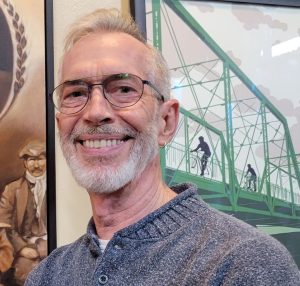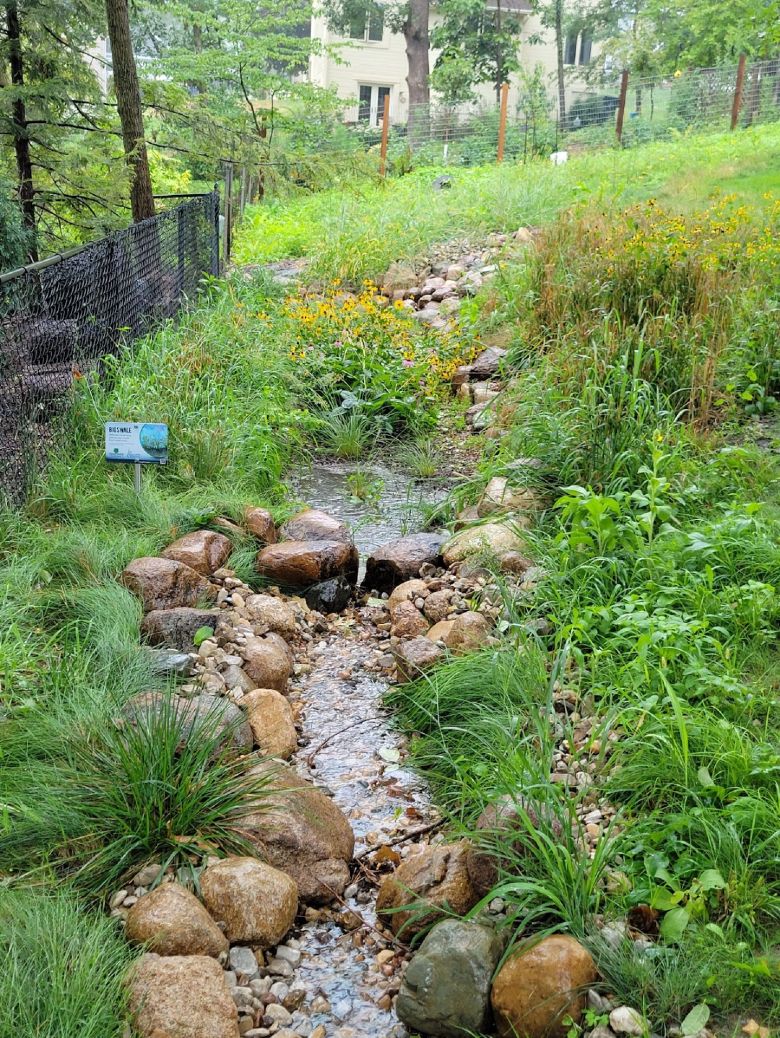 Les Beck, Past President of the Board of Directors for the Sustainable Iowa Land Trust (SILT), has devoted his life to building strong communities. In 2021, he retired from a 38-year career which included roles such as Planning and Zoning Director for Story County, IA and the Planning and Development Director for Linn County, IA. He’s been involved with SILT since 2014, and views responsible land management as key to not only environmental wellbeing, but individual wellbeing too.
Les Beck, Past President of the Board of Directors for the Sustainable Iowa Land Trust (SILT), has devoted his life to building strong communities. In 2021, he retired from a 38-year career which included roles such as Planning and Zoning Director for Story County, IA and the Planning and Development Director for Linn County, IA. He’s been involved with SILT since 2014, and views responsible land management as key to not only environmental wellbeing, but individual wellbeing too.
His early introduction to sustainability came through the Landscape Architecture program at Iowa State, and Ian McHarg’s Design with Nature, a book that emphasized designing in harmony with the natural landscape. Les has been part of SILT from the beginning, attending the founding weekend in 2014, where the idea for the organization was first shared. What began as a small, passionate group is now a growing force in Iowa, protecting over 1200 acres of land for sustainable farming and creating opportunities for new and beginning farmers to get a foot in the door. Through his work with SILT, he has seen the impact of a shared vision and how even small, collective efforts can lead to big changes.
Les has transformed his backyard into a space for rainwater purification and a pollinator habitat. He maintains a bioretention cell and pollinator garden, and his wife manages a vegetable garden in the front yard, turning their home into a real-world example of sustainable living. “To me, it’s a gorgeous piece of landscaping,” he says of his wife’s garden.
After retiring in 2021, he joined SILT’s board and has continued his passion for land conservation and sustainability ever since. Sustainable agriculture touches nearly every aspect of our lives, and Les sees its impact in several key areas:
Economic: Sustainable farming helps support local economies by keeping money within our communities and providing access to land that might not otherwise be available. He recalls a case study by the Center for Energy and Environmental Education (CEEE) at UNI, documenting the positive economic impact of a Waterloo restaurant, Rudy’s Tacos, through purchasing their ingredients from local producers.
Environmental: It’s about preserving the land—protecting soil health, improving water quality, and ensuring that the environment thrives for future generations.
Social: Sustainable agriculture undoubtedly provides access to healthy foods, but it also promotes community building. There are Iowans who rally together and build communities surrounding local foods, so supporting sustainable agriculture and small farms helps build community. It also helps build resilience by reducing reliance on imported foods. We saw this during the floods and the pandemic when local food systems became essential.
Through SILT, Les believes that local food systems strengthen communities and reduce our dependence on imported foods. “We’ve seen the benefits of local food systems during times of crisis, like the floods and the pandemic. When we support local farmers and growers, we’re building a stronger, more secure community.”

